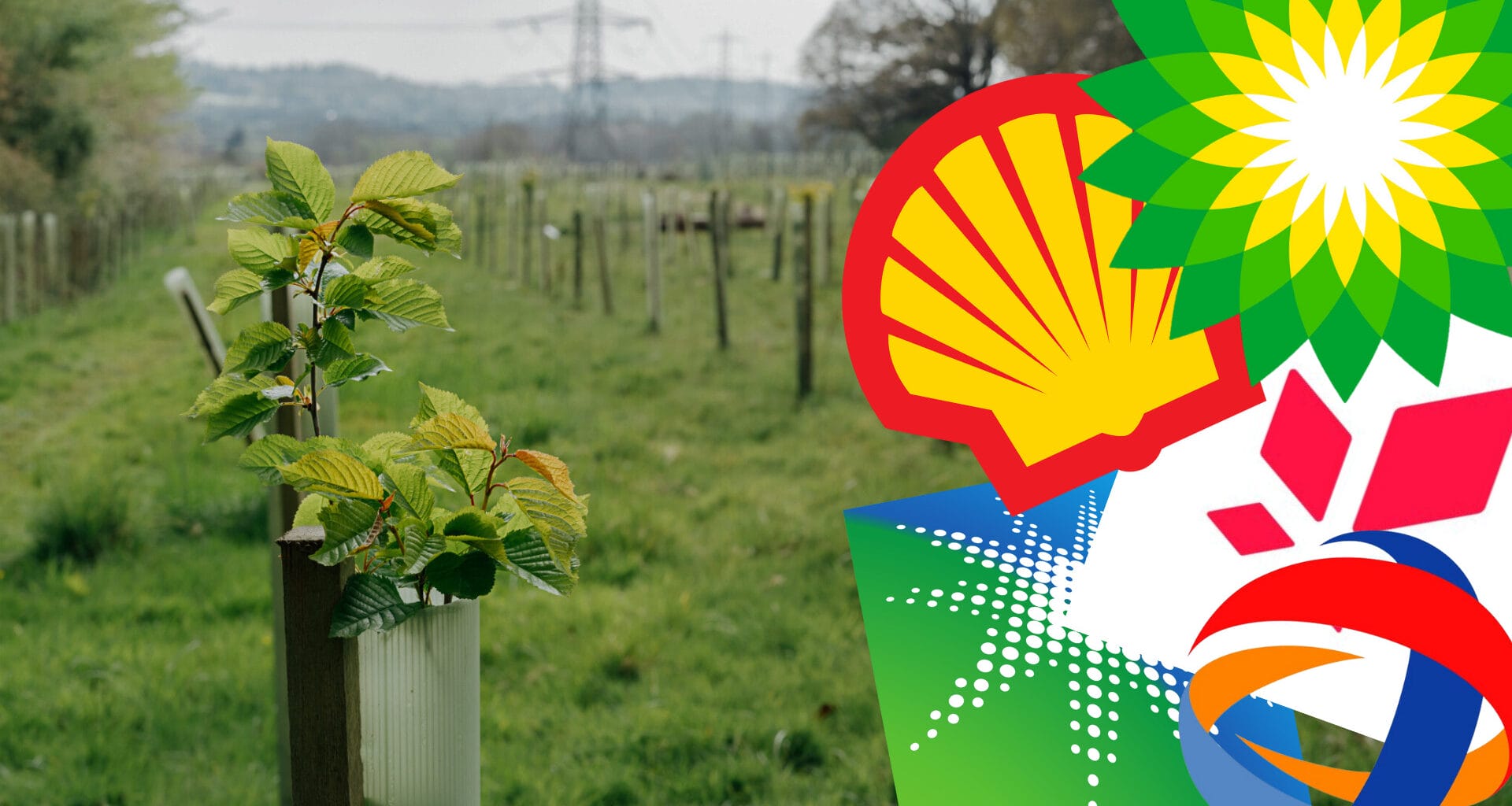A key partner in the Scottish Government’s climate plans could be stripped of its ethical company status after it was accused of “misrepresenting” its investments in fossil fuels.
Swiss bank Lombard Odier is set to profit from a tree planting scheme devised by Scottish Government wildlife agency, NatureScot, by selling carbon credits.
Ministers say the controversial project could lure £2bn of private money into tree planting in Scotland and argue it is “absolutely vital” if the country is to meet its climate targets.
But critics claim it is ‘greenwashing’ and being pushed by financial firms who are more interested in profiting from Scottish land than tackling climate change. That concern was heightened last year after The Ferret revealed Lombard Odier had shares in some of the world’s biggest polluters.
Now we can reveal that campaign groups have filed a complaint about Lombard Odier’s fossil fuel investments with B Corporation (B Corp), a global initiative whose ethical certifications are seen as the “gold standard” for corporate responsibility.
One Scottish campaigner told The Ferret the complaint was proof the Scottish Government and NatureScot had “woefully failed to do its basic homework” on companies involved in the tree planting scheme.
Lombard Odier said it was committed to the transition to a sustainable, renewable energy future, while NatureScot told The Ferret it had “undertaken due diligence” on all the companies involved in the tree planting scheme.
Lombard Odier is currently a certified B Corp. But the complaint – submitted by the corporate campaign group Eko and the Toxic Bonds network – alleges the firm has not been “transparent” about its investments in fossil fuels.
This complaint about Lombard Odier reinforces the point that the Scottish Government has woefully failed to do its basic homework on the companies it has partnered up with for this greenwashing ruse.
Caroline Rance, Friends of the Earth Scotland
Eko argues that Lombard Odier should have its B Corp status revoked unless it sells these “climate destructive” investments.
The complaint cites The Ferret’s findings about Lombard Odier’s holdings in Saudi Aramco, ExxonMobil, Shell and BP as proof that it “continues to contribute to run-away climate change”. All four are among the top ten most climate polluting companies in the world.
It also claims that Lombard Odier has bought hundreds of millions of pounds in bonds issued by companies who are expanding the global coal, oil and gas industries.
There is precedent for companies losing their B Corp status. BrewDog was stripped of its certification in 2022 following a BBC documentary which investigated its workplace culture.
Eko’s senior campaign manager, Nick Haines, said that despite Lombard Odier’s claims to be at “the vanguard of sustainable investing” when you “scratch beneath the surface things start to look a lot less green”.
Haines pointed out that Lombard Odier is a “major holder” of bonds issued by the Adani Group, the world’s largest private developer of coal.
“It’s increasingly difficult for retail investors to separate fact from fiction when it comes to sustainability claims,” Haines added. “In this context, independent certifications like B Corp’s carry significant weight.
“If greater transparency and a change in strategy is not forthcoming then we believe it is incumbent on B Corp to end its relationship with Lombard Odier.”
NatureScot says its tree planting project – which involves Lombard Odier and two other private firms -could create around 185,000 hectares of native Scottish forest over the next 30 years. The new trees could absorb 28 million tonnes of climate polluting carbon dioxide (CO2), the agency claims.
Planting trees to absorb CO2 from the atmosphere is an important part of the Scottish Government’s climate strategy.
Lombard Odier’s role in the woodland scheme is to arrange the sale of carbon credits produced by the planted trees to companies with “credible” climate plans.
Carbon credits are controversial, and some campaigners argue firms buy them to bolster their green credentials without actually changing their polluting practices.
Previously The Ferret has found that carbon credits generated on Scottish land have been sold to companies including Shell, financial institutions who invest in fossil fuels, and weapons manufacturers.
Friends of the Earth Scotland’s climate campaigner, Caroline Rance, told The Ferret that carbon credits are a “climate scam” which were designed to hide the “inaction” of big companies on the climate emergency.
“This complaint about Lombard Odier reinforces the point that the Scottish Government has woefully failed to do its basic homework on the companies it has partnered up with for this greenwashing ruse,” Rance added.
The Scottish Government directed The Ferret to NatureScot for a comment. A spokesperson for the agency argued private finance was “crucial” if Scotland is to reach net zero.
They added: “That’s why we are working with the Scottish Government and others to help build a new market for values led, high integrity, private investment in Scotland’s nature that benefits Scotland’s people and communities.”
The spokesperson said that no profits from fossil fuels will finance the woodland project and carbon credits generated will not be sold to fossil fuel companies.
Lombard Odier confirmed it had received notification of the complaint to B Corp. A spokesperson said: “As an investment house, we have a firm conviction in the role – and need – for investment to accelerate the transition to a sustainable future.
“We believe that the transition to a sustainable economy, powered by renewables, will lead to an economic system that will ultimately outcompete the existing fossil fuelled system.
“The transition will require investment in companies providing the products, services and solutions that will power the transition ranging from the providers of renewables, to electrified equipment and recycling technologies.”
B Corp confirmed it had received the complaint about Lombard Odier and was reviewing it.
Cover image thanks to OKrasyuk/iStock















At present uk imports most of its timber. Commercial forestry here suffers from long term mismanagement of land in general.
As long as land remains in the hands of a few super rich owners the potential for all sorts of deals including carbon credits is certain. Short term profits are always more attractive to investors.
Community ownership needs to be top of the agenda.